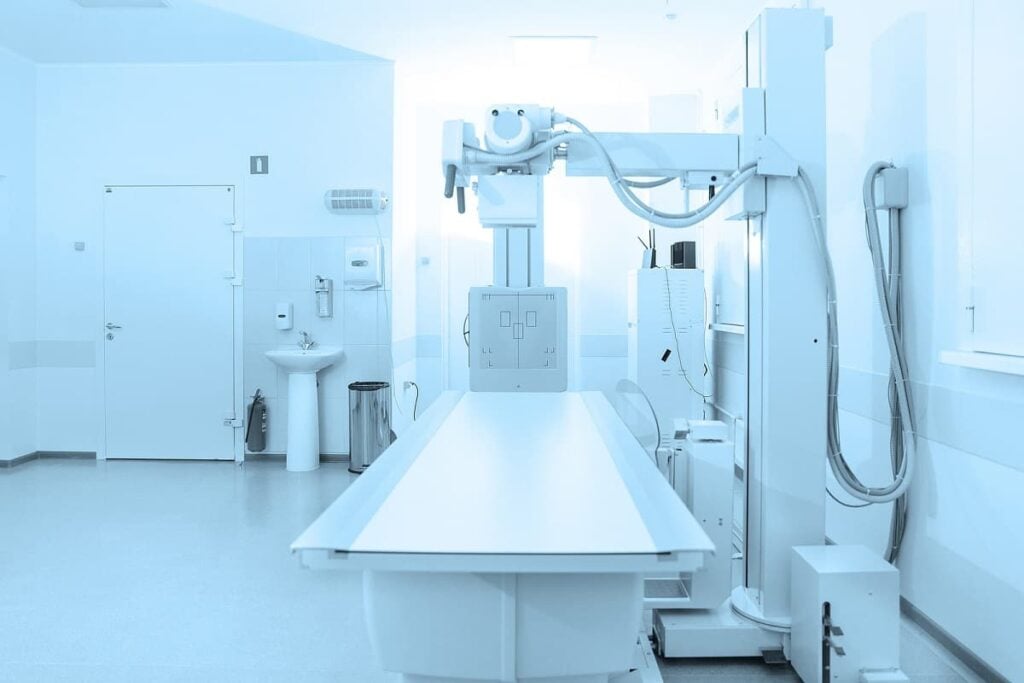Top-5 Artificial Intelligence Companies in Healthcare
Table of contents
Table of contents

We’ve talked before about the prospects of artificial intelligence (AI) and how it will likely disrupt things like we’ve never seen before with some estimates predicting that up to 80% of all service jobs will be impacted. Healthcare is one area where AI is receiving a good chunk of funding. We looked before at one example of an artificial intelligence company called Enlitic that uses machine learning technology to read X-rays better than a human radiologist who makes $286,000 a year on average. There are actually quite a few artificial intelligence companies in healthcare and CB Insights recently identified 65 of them at various stages of funding. The 5 artificial intelligence companies on that list which have raised $40 million or more so far are as follows:
iCarbonX
Founded just last year, Chinese company iCarbonX has taken in nearly $200 million in funding from investors that include the $200 billion Chinese internet giant Tencent. iCarbonX is “aimed at building an ecosystem of digital life based on a combination of individual’s biological, behavioral and psychological data, the Internet and artificial intelligence“. While you can sift through a few pages of Engrish on their site to try and figure out what that statement actually means, we’ll explain the potential of this company very simply as follows.
The founder and CEO of iCarbonX, Jun Wang, co-founded BGI (also known as the Beijing Genomics Institute) which is now the largest genomic organization in the world. Mr. Wang then decided to poach a whole bunch of BGI’s key players and start iCarbonX. Previously at BGI, Mr. Wang managed 3 fundraising rounds totaling $1 billion, and he has shown that he won’t have any issues raising funding for his new venture. BGI is one of the dominant players in genomics today and the man who made that happen is trying to do it again. That’s the simplest way to explain the potential of artificial intelligence company iCarbonX.
Welltok
Founded in 2009, Welltok has taken in $191 million in funding, some of which they have been using to make 5 acquisitions so far. Welltok is a “population health management company” which manages health programs for insurers and employers to encourage people to lead healthy lifestyles from exercising regularly to eating a balanced diet. The name of their platform, CafeWell, pretty much has “human resources initiative” written all over it. Now your employer not only owns you for 8 hours a day but they also will tell you what to eat and when to exercise. The AI piece comes in with Welltok being the first startup to receive funding from IBM’s Watson Group. This collaboration has resulted in a new product from Welltok called Café Concierge that supercharges your healthy lifestyle. Here’s a quote from VentureBeat on what sort of value we can expect from this product:
Rather than waiting until you get sick to head to the doctor, CafeWell Concierge always keeps track of your “personal health itinerary” (Welltok’s cutesy name for your health profile) to offer up health help. If you’re traveling while on a specific diet, for example, it could automatically recommend restaurants near your hotel that suit your needs. Or it could remind you that it’s been too long since your last doctor’s appointment.
This type of product looks good on paper but oftentimes falls short of expectations. A tool that makes restaurant recommendations for overpriced “healthy” organic restaurants and constantly reminds me that I need to go to the doctor just doesn’t sound all that appealing. Investors, however, think this is going to be a big hit and given Welltok is selling to corporates, there’s no reason this artificial intelligence company shouldn’t be.
Butterfly Network
Founded in 2011, Butterfly Network has taken in $100 million in funding from just a few investors, one of whom is Jonathan Rothberg. Mr. Rothberg is somewhat of a serial entrepreneur having founded Raindance Technologies, a company we profiled before, along with Ian Torrent which he sold for a cool $795 million. He is presumably able to fund the company himself which allows for a total focus on R&D as opposed to having to create flashy PowerPoints in order to attract funding. Butterfly Network is working on reinventing the ultrasound machine by squeezing all of its components onto a single silicon chip. An ultrasound that could sit on your smartphone could completely disrupt the entire market not to mention provide medical imaging for the 60% of people in the world that don’t have access to it.
Apixio
Founded in 2009, Apixio has taken in around $45 million to develop a cognitive computing platform for healthcare called Iris which doesn’t sound all that different to what IBM’s Watson is trying to accomplish. Essentially there is all this structured data in the form of electronic health records (EHRs) and all this unstructured data in the form of handwritten doctor’s notes. Iris takes all this data and inputs it into a common database using techniques like natural language processing and then uses machine learning to derive insights from the data that will allow companies to improve patient healthcare and no doubt cut costs. Even more importantly, the tool makes sure that the correct medical codes are used so that medical reimbursements through Medicare are streamlined. Apixio has relationships with some of the leading EHR providers.
Pathway Genomics
Founded in 2008, Pathway Genomics has taken in $40 million in funding so far with the most recent round closing in January of this year. We wrote an article about Pathway Genomics before in which we discussed their politically motivated board composition and the various types of genetic tests they have on offer. Since that article, Pathway Genomics has announced the launch of OME, the first mobile app to use artificial intelligence. Here’s a statement from their website on OME:
With the power of IBM Watson and Pathway’s novel A.I. forebrain, OME™ combines genetics, test results, health records, wearables, general reimbursement information and many other datasets with evidence-based health and wellness knowledge, to deliver to the user tailored and actionable recommendations for general health and wellness.
The idea here is that if you take the Pathway Genomics genetic tests, your smartphone can then begin sending you health advice messages customized to your genetic profile like “because of your PCSK9 gene, I would recommend 20 minutes of pilates to burn 190 calories“. The idea of a genetically personalized fitness trainer in my smartphone sounds great, but does Pathway Genomics really have that big of a genetic database that allows them to extract such insights? 23andMe and Ancestry.com both have genetic big data sets of over 1,000,000 records. In order for artificial intelligence companies to extract insights, they generally need to have access to “big data” first.
Sign up to our newsletter to get more of our great research delivered straight to your inbox!
Nanalyze Weekly includes useful insights written by our team of underpaid MBAs, research on new disruptive technology stocks flying under the radar, and summaries of our recent research. Always 100% free.
















